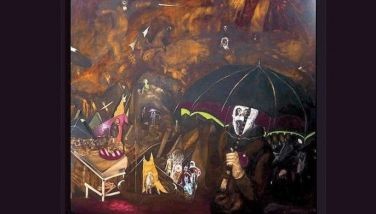Eroding the presidency
In the Philippines’ highly-personalized politics, while the presidency is the office and the president is the person, the terms are often merged and the credibility of the office and the person are taken as one, and the institution and the person are affected.
The barely two years and 10 months to go in the current administration are not periods to diminish or erode the stature and prestige of the presidency and the president. In 16 months, the current administration will be considered a “lame duck” by politicians and they will be positioning for the next election, while there are still initiatives and legislations to be done. I’m sure the existing powers are aware of this situation as may be seen by the damage control measures done by the official government spokesmen and their political allies; but it seems that overeager supporters of the president and his administration are creating and compounding the problems.
Over and above the legitimate controversial issues like China’s incursion into Philippine seas, teachers’ salaries, water shortage and the Kaliwa Dam, EDSA traffic, and student activism; Malacañang doesn’t need the Cardema/Duterte Youth controversy, rebellion charges against the opposition and priests, Tulfo libeling Executive Sec. Medialdea and the BIR commissioner, and the possible release of convicted ex-mayor Sanchez. These are opportunistic actions of overeager presidential supporters for personal benefits and to gain presidential favors, and the people can see through these. Corrective actions by the president’s more perceptive allies have been made but mostly after the damage has been done. Prior restraint from these supporters is the correct action to prevent this from happening.
In politics, especially Philippine politics, all possible supporters are accepted as it means more votes. Persons from the extreme left or right, including the “lunatic fringe” gravitate to winning candidates for their particular reasons. While affiliations of this kind of constituency cannot be prevented, the moral and ethical rules and tone of the party keeps them on check. The policies, initiatives, and reactions of any administration establishes guidelines and limits on what actions are allowed and are good for the administration. Over time, this will establish an environment of accountability and transparency that tempers invincibility. Over time, this tempers excessive unnecessary, provocative, and partisan actions damaging to the administration.
A most important component of management and administration is control.
After planning, setting up the organization, the human and physical infrastructure, and executing/implementing the plan, control is the mechanism that ensures that the implementation is according to plan. Reporting and other feedback mechanisms are usually in place but many times mistakes happen.
Technology has improved controls in that there are now auto feedback mechanisms in place, CCTVs and other real-time video and audio, and even sensors in designated locations. Even with of all these, disasters in implementation happen. This is where and when control of innate self-perpetuating human behavior becomes relevant.
The preservation of life and the perpetuation of society are primary motivations of human beings, and in order to achieve these ends, they want to live in an orderly society. Morality and ethics, while now viewed as ends in itself and maybe a way to heaven, are really to promote an orderly society to avoid conflicts and have peace among men. It’s imperative that social, political, and economic leaders promote and establish an integrated, comprehensive moral/ethical leadership and standards.
This is what leads a lowly airport janitor or a hotel cleaning lady to return hundreds of thousand pesos to their owners; or a government clerk to refuse a bribe, or a politician to do a project without a kickback. I believe Jesus Christ has been doing these for some time with significant success.
- Latest

























